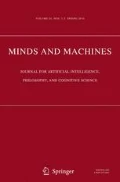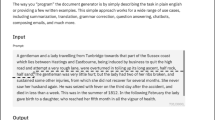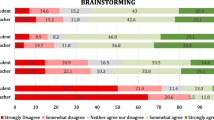Abstract
This paper argues that the Turing test is based on a fixed and de-contextualized view of communicative competence. According to this view, a machine that passes the test will be able to communicate effectively in a variety of other situations. But the de-contextualized view ignores the relationship between language and social context, or, to put it another way, the extent to which speakers respond dynamically to variations in discourse function, formality level, social distance/solidarity among participants, and participants' relative degrees of power and status (Holmes, 1992). In the case of the Loebner Contest, a present day version of the Turing test, the social context of interaction can be interpreted in conflicting ways. For example, Loebner discourse is defined 1) as a friendly, casual conversation between two strangers of equal power, and 2) as a one-way transaction in which judges control the conversational floor in an attempt to expose contestants that are not human. This conflict in discourse function is irrelevant so long as the goal of the contest is to ensure that only thinking, human entities pass the test. But if the function of Loebner discourse is to encourage the production of software that can pass for human on the level of conversational ability, then the contest designers need to resolve this ambiguity in discourse function, and thus also come to terms with the kind of competence they are trying to measure.
Similar content being viewed by others
References
Brown, P. and Levinson S.C. (1987), Politeness: Some Universals in Language Use, Reissue, Cambridge, UK: Cambridge University Press.
Collins, H.M. (1997), 'Rat-tale: Sociology's contribution to understanding human and machine cognition, in P.J. Feltovich, K.M. Ford, and R.R. Hoffman, eds., Expertise in Context: Human and Machine, Menlo Park, CA: AAAI Press, pp. 293–311.
Collins, H.M. (1993), 'The Turing test and language skills', in G. Button, ed., Technology in Working Order: Studies of Work. Interaction, and Technology, London, UK: Routledge, pp. 231–245.
Crawford, C. (1994), Letter in response to Shieber's 'Lessons from a restricted Turing test' and Loebner's 'In response', Communications of the ACM 37.9, pp. 13–14.
Culpeper, J. (1996), 'Towards an anatomy of impoliteness', Journal of Pragmatics 25, pp. 349–367.
Dennett, D.C. (1985), 'Can machines think?', in M. Shafto, ed., How We Know, San Francisco, CA: Harper & Row, pp. 121–45.
Epstein, R. (1992), 'The quest for the thinking computer', AI Magazine 13.2, pp. 81–95.
Garfinkel, H. (1972), 'Studies of the routine grounds of everyday activities', in D. Sudnow, ed., Studies in Social Interaction, New York, NY: The Free Press, pp. 1–30.
Grice, H.P. (1991), 'Logic and conversation', in S. Davis, ed., Pragmatics: A Reader, Oxford, UK: Oxford University Press, pp. 305–315.
Goffman, E. (1967), Interaction Ritual: Essays on Face to Face Behavior, New York, NY: Anchor Books.
Holmes, J. (1992), An Introduction to Sociolinguistics, London, UK: Longman.
Kasper, G. (1990), 'Linguistic politeness: Current research issues', Journal of Pragmatics 14, pp. 193–218.
Lakoff, R. T. (1989), 'The limits of politeness: Therapeutic and courtroom discourse', Multilingua 8(2/3), pp. 101–129.
Leech, G. (1983), Principles of Pragmatics, London, UK: Longman.
Loebner, H. (1994), 'In response', Communications of the ACM 37.6, pp. 79–82. [http://pascal.acm.org/~loebner/In-response.html] (20 July 1999).
Mauldin, M. (1994), 'Chatterbots, Tinymuds, and the Turing test: Entering the Loebner Prize Competition', in Proceedings of AAAI-94. [http://www.fuzine.com/mlm/aaai94-Slides.htlfll] (27 Aug. 1999).
Moor, J. (1976), 'An analysis of the Turing test', Philosophical Studies 30, pp. 249–257.
Platt, C. (1995), 'What's it mean to be human, anyway?', Wired 3.04. [http://www.hotwired.com/collections/robots_ai/3.04_smart_machines_pr.html] (27 Aug. 1999).
Powers, D. (1999), '1999 Loebner Prize Competition', [http://www.cs.flinders.edu.au/research/AI/LoebnerPrize/] (6 Oct. 1999).
Quan, T. (1997), 'Machine language', Salon 21 (May), [http://www.salon.com/may97/21st/article970S15.html] (22 Feb. 2000).
Rees, R. (1994), Letter in response to Shieber's 'Lessons from a restricted Turing test' and Loebner's 'In response', Communications of the ACM 37.9, p. 13.
Shieber, S. (1994), 'Lessons from a restricted Turing test', Communications of the ACM 37.6, pp. 70–78. [http://www.eecs.harvard.edn/shieber/papers/loebner-rev-html/loebner-rev-html.html] (29 Aug. 1999).
Turing, A.M. (1950), 'Computing machinery and intelligence', Mind LIX. 236, pp. 433–460.
Weizenbaum, J. (1966), 'ELIZA - A computer program for the study of natural language communication between man and machine', Communicaitons of the ACM 9.1, pp. 36–45.
Author information
Authors and Affiliations
Rights and permissions
About this article
Cite this article
Zdenek, S. Passing Loebner's Turing Test: A Case of Conflicting Discourse Functions1. Minds and Machines 11, 53–76 (2001). https://doi.org/10.1023/A:1011214808628
Issue Date:
DOI: https://doi.org/10.1023/A:1011214808628




